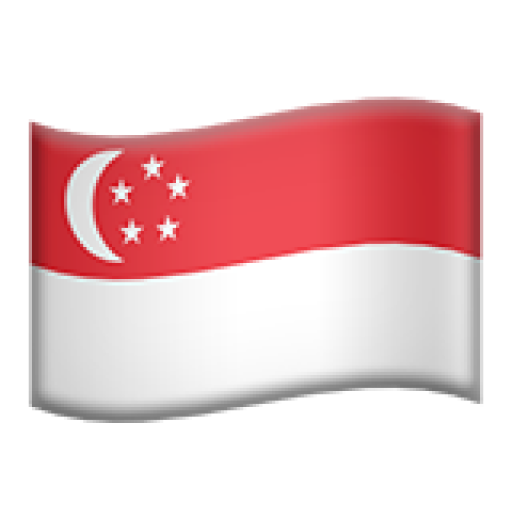Dear reader,
First, I want to promote the external work of two colleagues. “In the shadow of the cosmic” is a lecture-performance by Charmaine, my co-founder, which explores the avatar and techno-orientalism. It is also the latest in her THE YOUNG BODY UNIVERSE line of work, which I’m a big fan of. That’s on Friday evening, September 22nd at the Singapore Art Museum, part of a broader exhibition titled “Proof of Personhood: Identity and Authenticity in the Face of AI”. Read about Charmaine’s upcoming performance, and register for tickets here.
The very next afternoon at Hong Lim Park is SG Climate Rally 2023, the most important climate justice movement in Singapore. Jay, Jom’s social media manager, has been heavily involved since the start. Read about the programme here, and I urge you to support the movement by donating and/or showing up at Hong Lim Park on September 23rd in red. It’s completely run by volunteers, and they need money for basic operational and logistical stuff. If you need “official” endorsement of the event, check out this video by Tommy Koh, Singapore’s ambassador-at-large. So please donate, and I look forward to seeing you all at both events. Unfortunately, due to Speakers’ Corner regulations, only Singaporeans and PRs may join the event.
Next, a quick update on the POFMA orders we received in July. On Wednesday, the High Court dismissed our appeal. We’re disappointed and are considering a final appeal to the Court of Appeal, if it allows it. Read more about the High Court’s decision in the blurb at the bottom, taken from “Singapore This Week”. (Elsewhere in our weekly digest: Tharman’s win, Singaporeans trafficked to work in scam centres around South-east Asia, Baybeats 2023, and Sybil Lau’s famous grandfather.)
With POFMA, we believe that there is an important public interest issue at stake–as articulated here in a LinkedIn post by our fab pro-bono counsel, Jordan Tan. There are many important questions, I believe, at play, including: Who gets to determine the truth? If a minister believes that our work communicates a falsehood to some readers, how can we correct any misinterpretation of our words by those readers?
Even though we have pro-bono representation, our legal costs from disbursements, filing fees and providing security if we appeal are mounting. They’re likely to soon exceed S$20,000. We’re considering a crowdfunding campaign. On the one hand, we believe that we are in a unique position to help shape Singaporean perspectives on speech, truth and falsehoods—the bedrock for public discourse. On the other hand, maybe we’re being presumptuous; and perhaps there are more important uses for that money—we could have already paid half a year’s salary for a researcher at Jom, or produced three to four explainer videos on issues of concern with it.
These are the sorts of issues we’re debating internally. If you have any thoughts on how Jom should proceed, do reply and let me know. You, the subscribers, are our main constituents, and we’re building this firm together.
This week’s essay, “Postcard from Taipei: drag kings on stage”, is by Liting Tan, a Singaporean who moved to Taiwan in 2018, “presumably to pursue a Masters in Fine Arts”. They have since made a name for themselves as a prominent drag king in Taipei.
Liting’s postcard is different from previous ones in a few ways. The others are mostly itinerant musings from Singaporeans who are either passing through or have made temporary homes elsewhere. They’re on specific topics, like urban farms or how the war in Ukraine is perceived in Moscow.
Liting’s, by contrast, is about a journey of self-actualisation that criss-crosses identities and geographies. It’s introspective and expansive, and is effectively the story of a person moving out of Singapore—the how and why.
Through their story, one feels the lasting impact of broad historical currents, such as the exodus of Chinese from the mainland to Taiwan that accelerated in the 17th century after the Qing dynasty gained power. “Taiwan has always been attractive to outsiders. It is a land of immigrants, and often a place of refuge for those who needed it,” they write. But also conveyed is the immediacy of contemporary social change, as Taiwan became the first country in East Asia to have marriage equality: “A win for my fellow Taiwanese queers was a win for me too.”
Liting’s writing—pithy, poignant and humorous—allows us to better understand the complexities of liminality and identities. Notions of Chineseness, and what it means to be a Chinese Singaporean in Taiwan, dovetail with their exploration of gender identities for a masculine-presenting, assigned-female-at-birth person.
They describe prejudice in numerous ways—because of their language, skin tone, and gender–but also the hope and salvation as they find meaning between spaces. “Taiwan understands, and takes you in with its warm, accepting arms.”
Jom terima,
Sudhir Vadaketh
Editor-in-chief, Jom
If you've enjoyed our newsletters, please scroll to the bottom of this page to sign up to receive them direct in your inbox.







